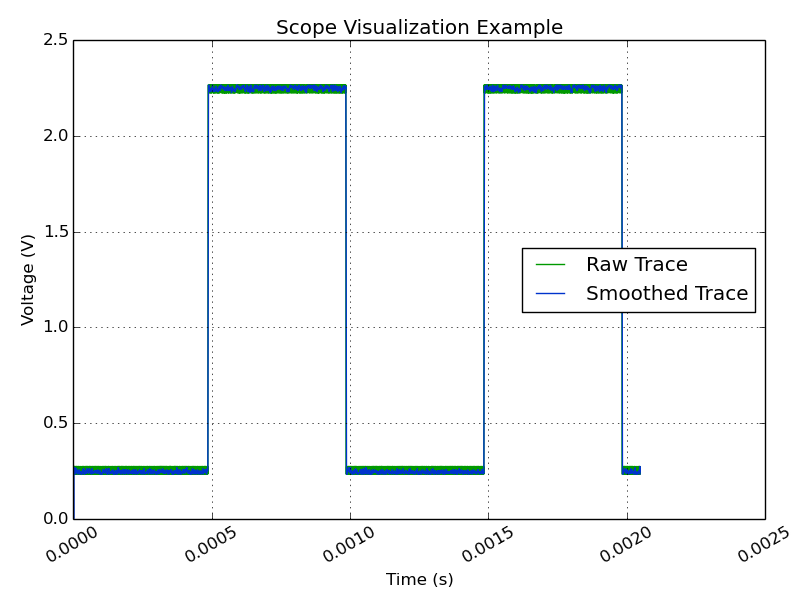Hantek 6022BE Python API for Windows and Linux. This is a API for Python via ctypes for Hantek's SDK for the ultra-cheap, reasonably usable (and hackable) 6022BE DSO, with a libusb implementation via libusb1 for Linux. I was tired of using the silly Chinese software that came with this DSO, so I decided to write an API so I could run the scope through Python.
The scope can be accessed by instantiating an oscilloscope object with the correct scopeid (always 0 for one scope attached). Things like voltage divisions and sampling rates can be set by the appropriate methods. As I finish developing this, I will include documentation. Each method has some documentation as to what it does currently though, and hopefully variable names are clear enough to give you some idea what they are for.
(Also, the provided DLLs that access the scope belong to Hantek, not me. They are provided simply for ease of access and are probably NOT covered by the GPL!)
While this scope isn't quite as poweful as your many-thousand dollar Tektronix or even your run of the mill Rigol 1102E, with a little bit of programming, it's capable of doing interesting things. User -johoe on reddit was able to use this library and scope to launch a successful side-channel attack on his TREZOR bitcoin device, and extract the device's private keys; yes side-channel attacks aren't just for NSA spooks and crusty academics anymore, even you can do it in your home with this inexpensive USB scope. :)
If you have you have your own examples or have seen this library used, please let me know so I can add the examples here.
If you're on Linux, you're also in luck, as I've provided some reverse engineered binding for libusb to operate this little device. You may wish to first add 60-hantek-6022-usb.rules to your udev rules, via
sudo cp 60-hantek-6022-usb.rules /lib/udev/rules.d/
After you've done this, the scope should automatically come up with the correct permissions to be accessed without a root user.
You need to compile the custom firmware. Install sdcc for this. Then run make in the directory HantekFirmware/custom:
git submodule update --init
sudo apt-get install sdcc
cd PyHT6022/HantekFirmware/custom
make
With the device plugged in, run the example_linux_flashfirmware.py example,
python examples/example_linux_flashfirmware.py
to bootstrap the scope for use. You can then write your own programs, or look at the current channel 1 scope trace via
python examples/example_linux_scopevis.py
- Clean up library, apply good formatting.
- Clean up unit tests.
- Add more examples.
One excellent ultimate goal for this would to make it play nice with cheap ARM SBCs like the Raspberry Pi, such that this could be used as a quick and dirty DAQ for many interesting systems.
For additional (interesting) details, the inquisitive reader should read: http://www.eevblog.com/forum/testgear/hantek-6022be-20mhz-usb-dso/
UPDATE: If you're interested in contributing and updating this repo, I'd be glad to have help maintaining it. I do accept pull requests.
